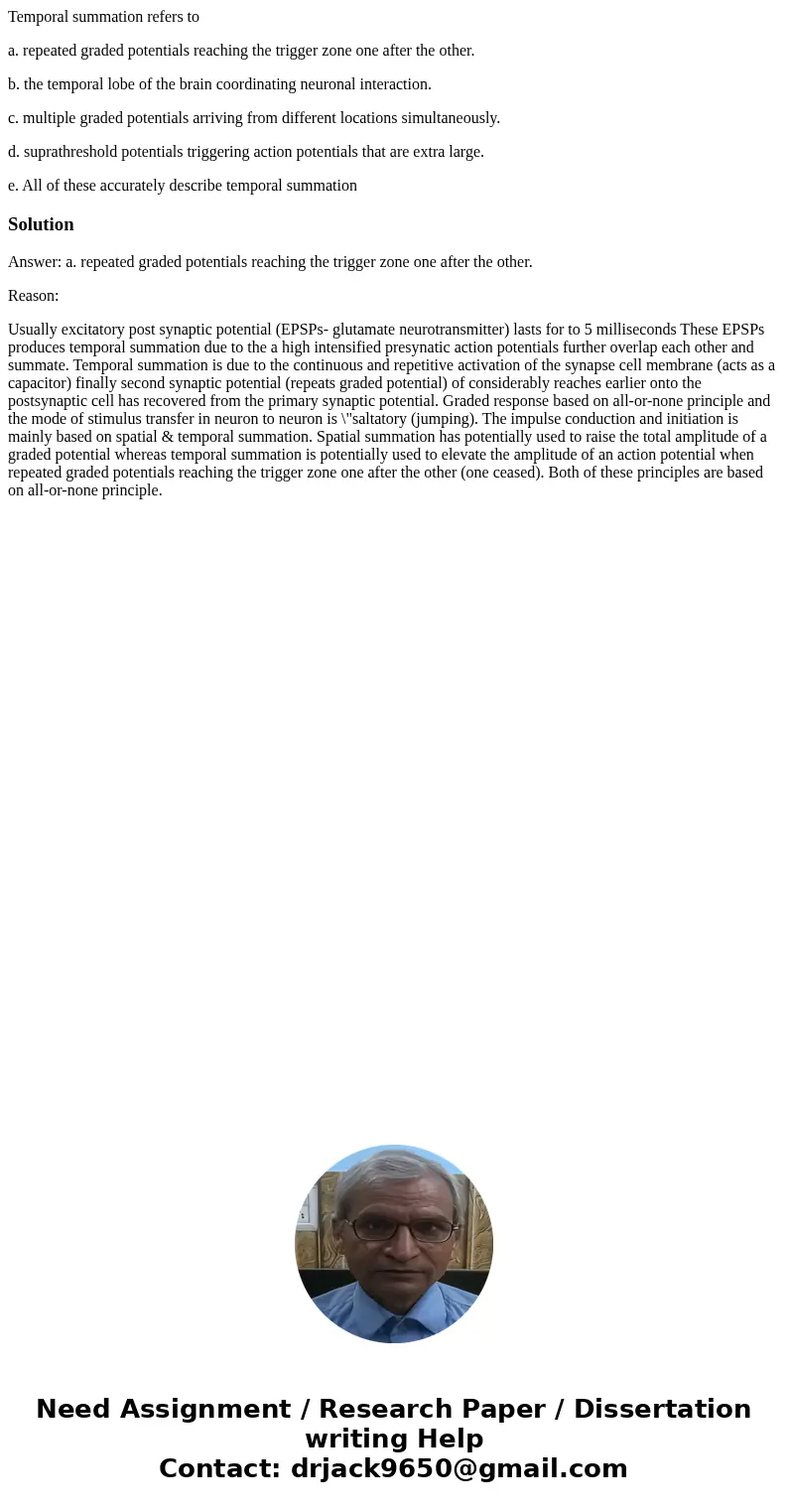Temporal summation refers to a repeated graded potentials re
Temporal summation refers to
a. repeated graded potentials reaching the trigger zone one after the other.
b. the temporal lobe of the brain coordinating neuronal interaction.
c. multiple graded potentials arriving from different locations simultaneously.
d. suprathreshold potentials triggering action potentials that are extra large.
e. All of these accurately describe temporal summation
Solution
Answer: a. repeated graded potentials reaching the trigger zone one after the other.
Reason:
Usually excitatory post synaptic potential (EPSPs- glutamate neurotransmitter) lasts for to 5 milliseconds These EPSPs produces temporal summation due to the a high intensified presynatic action potentials further overlap each other and summate. Temporal summation is due to the continuous and repetitive activation of the synapse cell membrane (acts as a capacitor) finally second synaptic potential (repeats graded potential) of considerably reaches earlier onto the postsynaptic cell has recovered from the primary synaptic potential. Graded response based on all-or-none principle and the mode of stimulus transfer in neuron to neuron is \"saltatory (jumping). The impulse conduction and initiation is mainly based on spatial & temporal summation. Spatial summation has potentially used to raise the total amplitude of a graded potential whereas temporal summation is potentially used to elevate the amplitude of an action potential when repeated graded potentials reaching the trigger zone one after the other (one ceased). Both of these principles are based on all-or-none principle.

 Homework Sourse
Homework Sourse